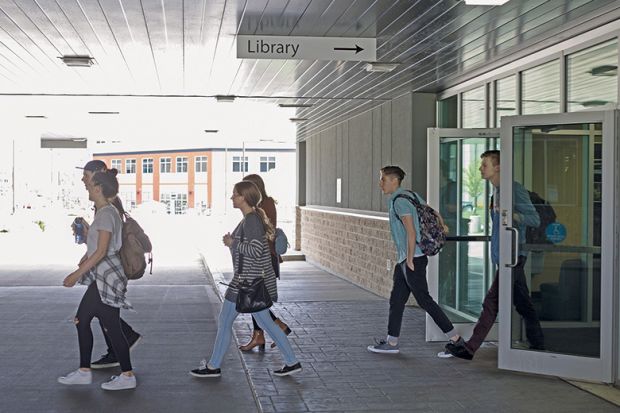Students at UK universities are spending less time studying, in and out of class, and more time working for pay or caring, according to a major survey.
The UK Engagement Survey, conducted by the Higher Education Academy and based on the responses of 35,927 undergraduates at 42 institutions, found that less than half of students – 48 per cent – said that they spent 11 or more hours a week studying independently. This compares with 52 per cent in 2016.
The proportion of students spending 11 or more hours in timetabled classes each week also dropped significantly, from 55 per cent to 51 per cent.
In contrast, 52 per cent of students said that they worked for pay during term time, up from 45 per cent last year (and 43 per cent in 2015); and nearly one in four (24 per cent) said that they had caring responsibilities, up five percentage points year-on-year.
This appears to leave students with less time to devote to extracurricular activities, since the proportion of students who said that they took part in university sports or societies slumped from 60 per cent to 54 per cent.
The declining amount of time that undergraduates spend studying is identified as a concern by the HEA because, unsurprisingly, increased study time in or out of class is associated in the survey with greater perceived skill growth. As was the case with last year’s UK Engagement Survey, independent study was more likely to be associated with greater skill growth.
Participating in sports and societies is also associated with skill growth, particularly in career and analytical skills, although caring is as well and, to a lesser extent, so is paid work.
Jonathan Neves, the HEA’s head of surveys, said that students from all backgrounds needed to be supported to have a well-rounded university experience.
“There appear to be issues with students looking as though their responsibilities for working for pay are having to increase, and you could suggest that is linked to economic factors,” he said. “If students are having to work for more pay to the detriment of study time, that is clearly a concern, but if in the extracurricular area it is to the detriment of sports and societies that is also a concern.”
This is not the first survey to suggest that students’ study time is decreasing. The 2017 Student Academic Experience Survey, conducted by the HEA and the Higher Education Policy Institute, found that its 14,057 respondents reported studying for an average of 30.42 hours a week, down from 32.41 the year before. A reduction in time spent studying independently was identified as the cause of the decline.
Register to continue
Why register?
- Registration is free and only takes a moment
- Once registered, you can read 3 articles a month
- Sign up for our newsletter
Subscribe
Or subscribe for unlimited access to:
- Unlimited access to news, views, insights & reviews
- Digital editions
- Digital access to THE’s university and college rankings analysis
Already registered or a current subscriber? Login








